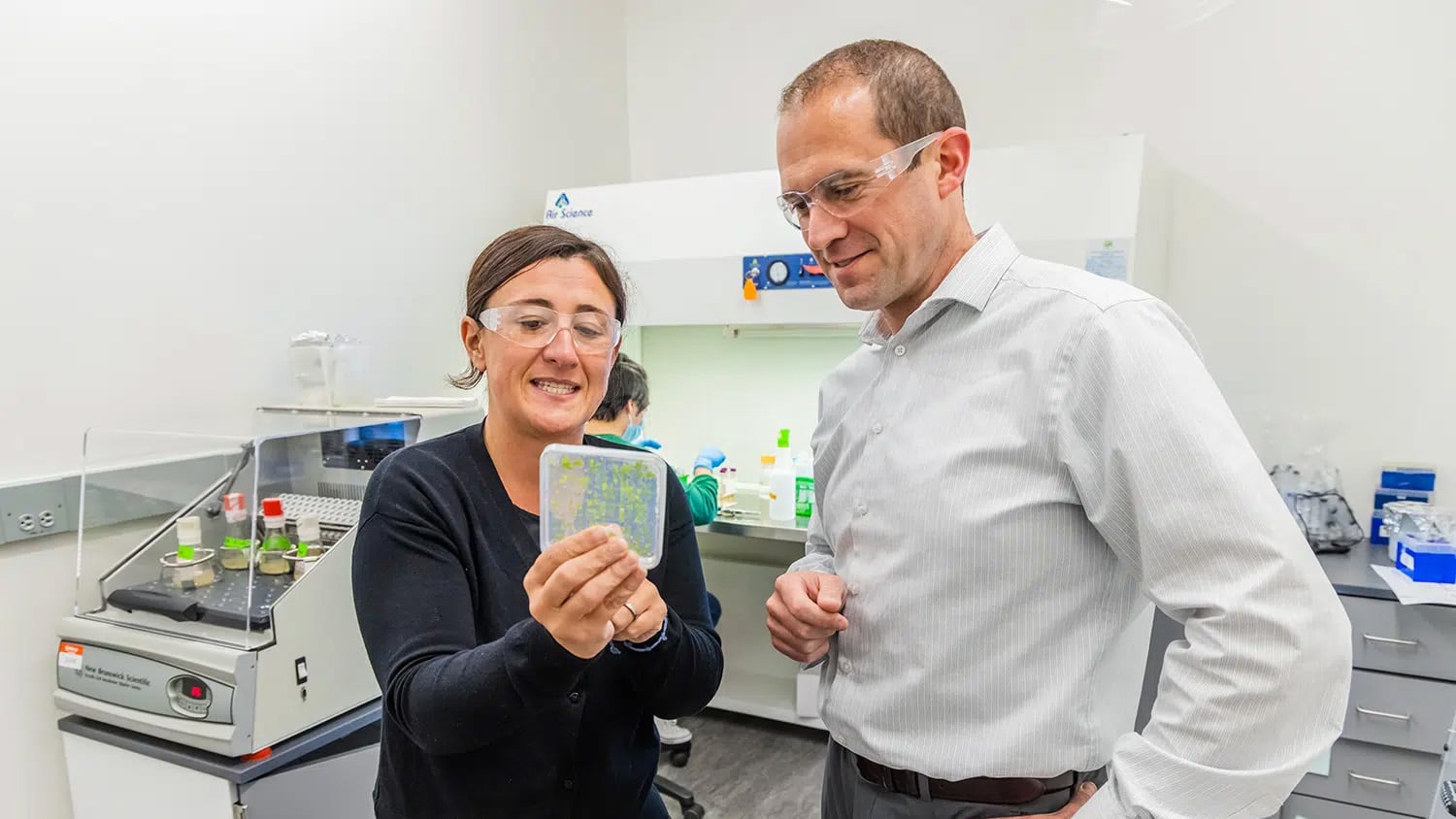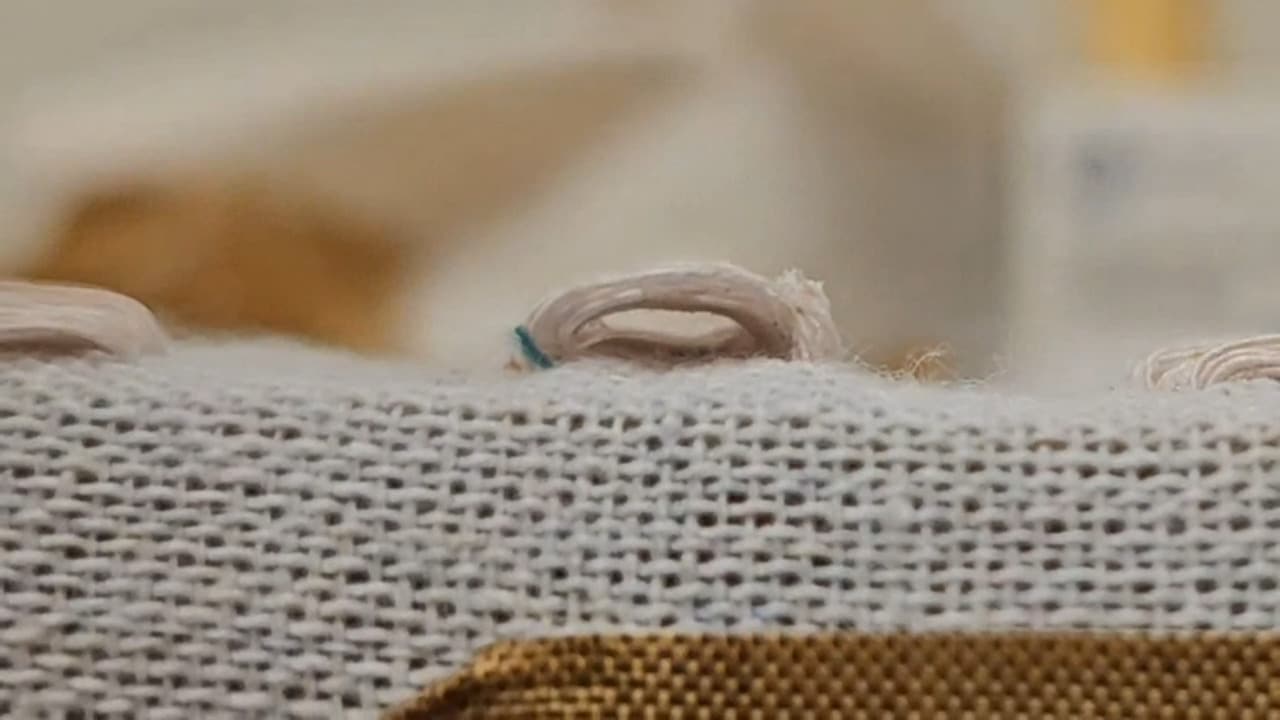Powerful Partnerships
In an industrial design studio at NC State University, students are brainstorming ideas for adapting kitchen appliances to reclaim the heat that is usually lost during food preparation. It’s a complex project involving advanced materials, cutting-edge prototypes and sophisticated cost-flow modeling.
This isn’t your typical design class; these students are as likely to be majoring in engineering or business management as industrial design. And they’re hoping for more than just a good grade. They want their names on a patent that could ultimately lead to new products for use in restaurant kitchens.
It’s this kind of “think and do” attitude that led Fortune 500 firm Eastman Chemical Company to ink a six-year, $10 million research agreement with NC State in 2012. Since then, the company has sponsored more than 30 research projects tapping the talents of high-performing students and world-leading researchers in nine departments across the 2,000-acre campus, including industrial design, chemistry, forest biomaterials, materials science and engineering, chemical and biomolecular engineering, and textile engineering, chemistry and science.
In just the past several months, NC State has been selected to lead some of the federal government’s most important collaborative research projects, including a $140 million advanced manufacturing institute, a $60 million big data laboratory and a $25 million effort to combat the spread of nuclear weapons. And NC State has been chosen to lead one of the U.S. Department of Agriculture’s seven regional climate research hubs.[/brite]
After just four rounds of funding, the partnership has already resulted in six patent applications for new and improved products. That’s good news for Eastman, a global company with 14,000 employees and 45 manufacturing sites worldwide that relies on innovation to maintain its leadership in chemicals, fibers and plastics.
Stewart Witzeman, director of the Eastman Innovation Center at NC State, says the company’s partnership with the university is successful because “it’s a high-touch model.”
“We decided we wanted to be directly engaged and physically present on campus,” he says.
Eastman found ample space for its new center in the heart of NC State’s Centennial Campus, the university’s public-private research campus. Centennial is home to more than 60 government, industry and nonprofit partners as well as more than 70 NC State research and academic units. Eastman’s center is walking distance to the College of Engineering, the College of Textiles and the technology-rich Hunt Library, giving the center’s scientists easy access to much of the university’s research infrastructure.
“Our goal was to have fewer, deeper relationships with key departments at the university, and that’s certainly what we’ve obtained,” Witzeman says. “There’s a spirit of partnership at NC State, not an ‘us versus them’ mentality.”
‘A Hub for Hubs’
Collaboration is encoded into NC State’s DNA. The university has become known for leading large partnerships that leverage the skills of experts across a wide range of fields in the public and private sectors to solve complex problems.
“I think we’re the best in the country at leading public-private partnerships,” says Terri Lomax, vice chancellor for research, innovation and economic development. “We’ve become a hub for hubs.”
Since she took the division’s helm five years ago, Lomax has focused on fine-tuning administrative processes to make them more suited to the needs of industry.
In Eastman’s case, Lomax and her team worked with the company to hammer out a master research agreement up front. Since all the details of the relationship have already been set down in one document, it takes remarkably little paperwork for Eastman to approve new research projects.
“I can initiate a project with a simple task order, which is essentially saying we approve the budget and the project plan,” Witzeman says. “There’s no way we could have done 30 individual research contracts with different universities in this short amount of time.”
The university’s focus on the customer doesn’t end there. Brian Smith, a senior partnership developer in NC State’s Centennial Campus Partnership Office, helps Eastman make the most of its relationship with the university, ensuring that projects are implemented smoothly and efficiently.
“I work on the nuts and bolts of the relationship with NC State and Eastman staff to make sure we translate the master research agreement into an effective partnership,” he says.

Respect for Industry
NC State also makes it easy for strategic industry partners to reap the fruits of university research by agreeing to licensing terms and fees for intellectual property up front.
“If they are willing to pay a small engagement fee up front, we’ll allow them to manage the intellectual property and the commercialization process,” Lomax explains. “They don’t pay royalties to the university until they reach a certain milestone of sales.”
That innovation-friendly mindset is grounded in an understanding of the risks businesses face in an era of tough global competition. “We’re not going to nickel-and-dime our industry partners while they’re spending their resources to develop a product and get it to market,” she says.
That business-friendly culture was one of the primary reasons Eastman selected NC State as a research partner, Witzeman says.
“We looked at a lot of universities,” he says. “Some were more dogmatic, some were more open. At NC State, there’s an attitude among the administration and the faculty of wanting to work with industry and of understanding the kind of problems we’re trying to solve.”
- Categories:


